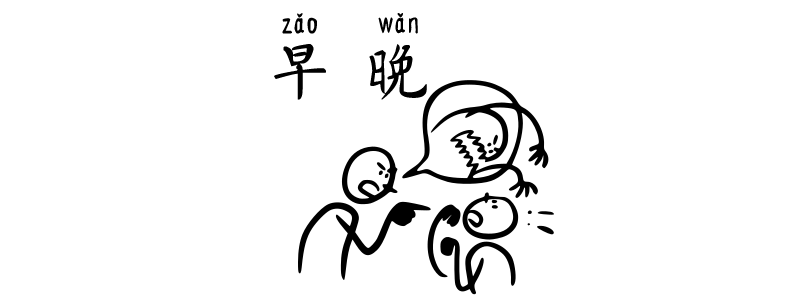Grammar Point:
The Chinese word 早晚 zǎowǎn literally means “morning and evening”, but it’s commonly used as an adverb to mean “sooner or later.” That is, something is bound to happen eventually, though the exact time is uncertain.
Structure
早晚 zǎowǎn + Verb Phrase
It can be used to soften the tone when talking about something difficult, like giving bad news or encouragement.
這種亂花錢的習慣,早晚會出問題这种乱花钱的习惯,早晚会出问题
This kind of reckless spending is bound to cause trouble sooner or later.
早晚你會感謝現在努力的自己早晚你会感谢现在努力的自己
Sooner or later, you’ll thank yourself for working hard now.
你這樣不說清楚,早晚會被人誤會你这样不说清楚,早晚会被人误会
If you don’t make things clear, you’re bound to be misunderstood.
早晚你會發現他根本沒那麼喜歡你早晚你会发现他根本没那么喜欢你
Sooner or later, you’ll realize he’s just not that into you.
車開這麼快,早晚會出事车开这么快,早晚会出事
If you keep driving that fast, you’re going to crash sooner or later.
你一直囤東西,家裡早晚會變倉庫你一直囤东西,家里早晚会变仓库
If you keep hoarding like this, your house will turn into a warehouse sooner or later.
早晚你會愛上台灣臭豆腐的味道早晚你会爱上台湾臭豆腐的味道
Sooner or later, you’ll fall in love with the taste of Taiwan stinky tofu.


